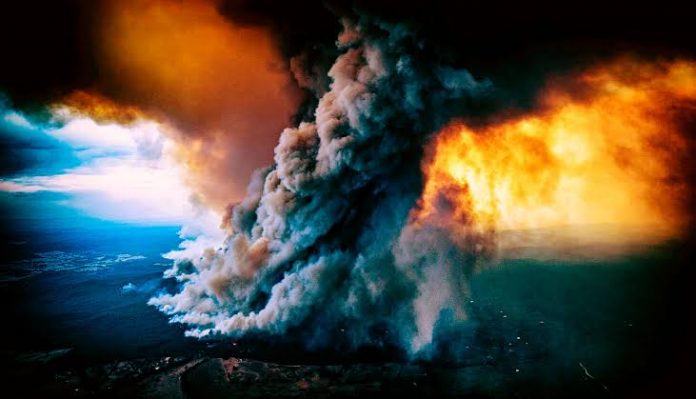By Kevin Bloom
If history brings insight and insight brings clarity, 2020 must be the year humanity responds with effective action to the greatest threat it has ever faced. From Rockefeller’s Standard Oil to Exxon Mobil and our own coal sector, the fossil fuel industry has consistently beaten the lawmakers — now our world is on fire. But with rich nations like Australia suddenly on the climate frontlines, the courts may be ready to push back. For South Africans, who’ll be directly affected by a raft of climate-related cases set down for 2020, the outcome couldn’t be more personal.
I. Fuel for the fire
“Laws are spider webs through which the big flies pass and the little ones get caught.”
Two centuries back, when the French novelist Honore de Balzac wrote these words, the stakes were lower. The sixth mass extinction was not yet a lived reality, the polar ice caps were not yet disappearing into the sea and Paris, Balzac’s hometown, was not sweltering in 40°C summer heat. Anthropogenic carbon emissions, or what there were of them, came mostly from oil lamps, wood fires and coal stoves — James Watt’s steam engine, although commercialised, was three decades away from ushering in the industrial age. The world may or may not have been a happier place, but it was more or less intact.
By the late 1800s, around the time that Swedish chemist Svante Arrhenius was calculating the connection between C02 emissions and the Earth’s temperature — a doubling in greenhouse gas content, the Nobel laureate concluded, would heat the planet by 5-6°C — the system was primed for the great unravelling.
Because what was clear, even then, was that the law had been outgunned by the energy industry. The Standard Oil Company, the world’s first major fossil fuel conglomerate, had eliminated the competition to seize control of 95% of US oil production, and the government was trying to break the company up. But founder John D Rockefeller had created a maze of holding structures and trusts, which rendered Standard Oil impervious to public investigation.
“You could argue its existence from its effects,” wrote Ida Tarbell in her celebrated history of the conglomerate, “but you could not prove it.”
Tarbell may have been familiar with Balzac’s metaphor about spiders and flies. She had faced the commercial Machiavellianism of the Gilded Age head-on, when her father — a small oil producer — had refused Rockefeller’s offer of a buy-out. Her personal experience of the consequences of that decision had gestated for 30 years, until she parlayed it into what Smithsonian Magazine termed a “redefinition” of investigative journalism: a 19-part series (and book) that unearthed the kickbacks, collusions and conspiracies upon which Rockefeller had built his empire. In the end, Tarbell’s muckraking achieved what the US government, acting alone, could not — by the time she was done, Standard Oil was no more.
Fast forward 120 years, past the short-lived hiatus of the Progressive Era (when, thanks in no small part to Tarbell, social and political reform held out for once against Big Money), and Balzac’s metaphor was back with a vengeance. In late October 2019, Exxon Mobil found itself in the New York State Supreme Court, on charges of lying to its shareholders about the potential future costs of the climate crisis. On its merits, the case was sound, with the state prosecutor leaning on the ground-breaking work of journalists to argue that “the company failed to manage the risks in the way it promised.” But the judge, who refused to recuse himself after it was revealed that he held $250,000 in Exxon stock, dismissed the case on 10 December 2019, ruling that there was “no proof” the company had duped investors.



